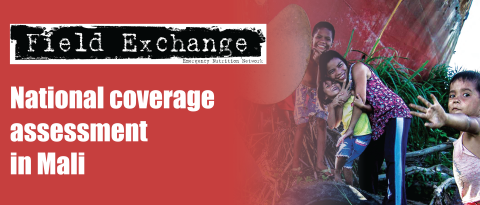Call to Action on improving Water, Sanitation, and Hygiene for Maternal and Newborn Health
Summary of paper1
Location: Global
What we know: Water, sanitation, and hygiene (WASH) may impact maternal and newborn health (MNH).
What this article adds: A recent collaborative paper by WASH and MNH agencies urges action and offers recommendations to accelerate WASH service provision at home and in health care facilities to improve MNH. The Post-2015 development framework is an opportunity for a stronger, more inter-sectoral response. The actions are achievable, the timing is favourable and there is sufficient knowledge to justify action.
A recently published paper by academics and representatives urges action and offers recommendations to accelerate water, sanitation and hygiene (WASH) service provision at home and in health care facilities to improve maternal and newborn health (MNH). Key summary points are:
There is sufficient evidence that WASH may impact MNH to warrant greater attention from all stakeholders involved in improving MNH and achieving universal WASH access.
Enabling stronger integration between the WASH and health sectors has the potential to accelerate progress on MNH; this should be accompanied by improved monitoring of WASH in health care facilities providing MNH services as part of routine national-level monitoring, and at the global level through international instruments.
Global and national efforts to reduce maternal and newborn mortality and morbidity should adequately reflect WASH as a pre-requisite for ensuring the quality, effectiveness, and use of health care services.
The Post-2015 development framework is an opportunity for a stronger, more inter-sectoral response to the MNH challenge, and the goals and targets aimed at maximizing healthy lives and increasing access to quality health care should adequately embed WASH targets and success indicators.
Further implementation research is needed to identify effective interventions to improve WASH at home and in health care facilities, and to impact on MNH in different health system contexts.
An international framework that reflects the complex determinants of MNH must be applied at country level to achieve results. There are lessons to be learned from WASH and education on cross-sectoral action, e.g. from Malawi and Sri Lanka, that can inform health and WASH collaborations.
The World Health Organisation’s Essential Environmental Health Standards in Health Care (2008)2 sets out the essential environmental health standards required for varying levels of health care settings in medium- and low-resource countries. The Standards contain a set of 11 guidelines, with a set of indicators and guidance notes and checklist for assessing the implementation of each guideline.
A comprehensive consultation across the international WASH sector involving more than 100 experts from more than 60 organizations worldwide has resulted in a proposed Water, Sanitation, and Hygiene Target for the Post-2015 Development Framework. The vision is that of universal access to safe drinking water, sanitation, and hygiene. The vision to be achieved by 2030 aims:
- to eliminate open defecation
- to achieve universal access to basic drinking water, sanitation, and hygiene for households, schools, and health care facilities
- to halve the proportion of the population without access at home to safely managed drinking water and sanitation services, and
- to progressively eliminate inequalities in access.
The emerging consensus on the need for a Universal Health Coverage (UHC) approach presents an important opportunity to bridge the gaps between the WASH sector and the health system and embed WASH in health care services, involving promotive, preventive, curative and rehabilitative/palliative services.
1 Velleman Y, Mason E, Graham W, Benova L, Chopra M, et al. (2014). From Joint Thinking to Joint Action: A Call to Action on Improving Water, Sanitation, and Hygiene for Maternal and Newborn Health. PLoS Med 11(12): e1001771. doi:10.1371/journal.pmed.1001771
2 WHO (2008) Essential environmental health standards in health care. Geneva: WHO.


